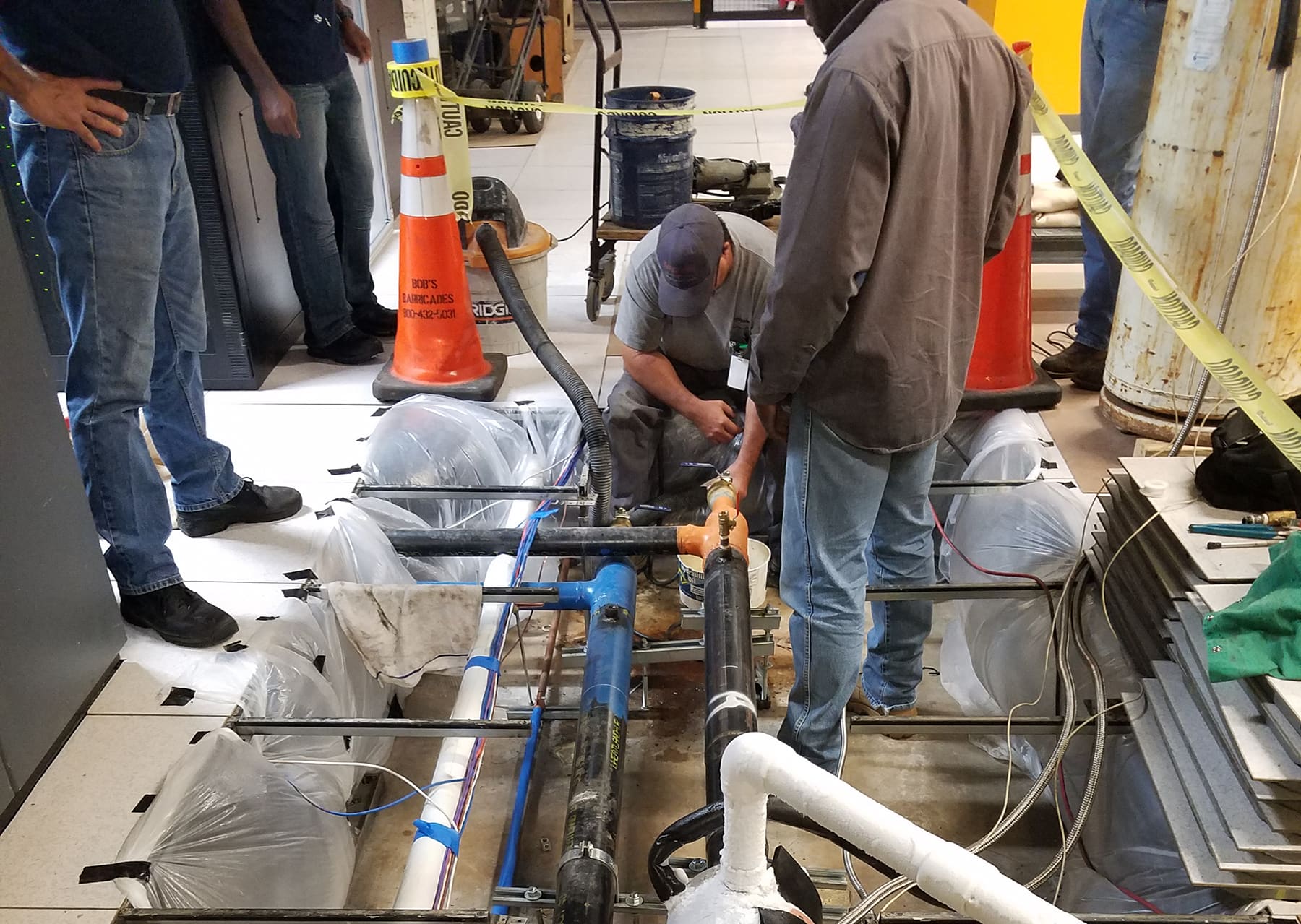
Data Center Managers address enormous tasks each day to maintain data center uptime. Because human error is the leading cause of loss of critical bus within a data center, any work construction or maintenance performed inside an operating on-line facility needs to be closely monitored. However, monitoring, reviewing and scheduling construction or maintenance work can consume considerable time of a facilities staff and increase normal workloads. What is a Data Center Manager to do? The work must be done and outside contractors will be inside your critical space. A “System” can be developed to provide a structural approach for completion of a given task.
System Designations:
- The overall Scope of Work (SOW) description is to be developed. This will break down the project into various discipline sections.
- Engage a qualified “Project Manager” or “Construction Manager”. This individual must know data center design on all levels and must be able to demonstrate their knowledge, expertise and past data center project involvement.
- Qualify the General Contractor with their data center knowledge and experience. (see prior post on “How Important Is Your Contractor’s Data Center Experience?”) The General Contractor is to be an expert with the data center physical operation. This individual should be able to describe “Sequence of Operations (SOO) for all major equipment systems and how they interrelate with each other. An experienced Data Center General Contractor has the ability and vision to recognize blockage points in the design that will delay the project schedule and increase costs. An inexperienced General Contractor will not have the vision to recognize deficiencies in design or construction methodologies. These deficiencies will become apparent in the last 5-10% of the project and will either result in change orders, project delays and cost overruns.
- Qualify the major subcontractors; mechanical, electrical, fire protection with their data center knowledge and experience. The individual trade foreman’s knowledge will have a tremendous impact on the progress and overall success of the project.
- Methods of Procedure (MOP) must be written and distributed to all interested parties for approval when tasks are scheduled impacting the operating critical load. This minimizes any misconception on what, where and when is being performed. This communication tool between contractor and Data Center Manager allows all parties to critique and approve any tasks prior to commencement. The General Contractor is responsible for assembling the MOPs when multiple trades are involved. This again magnifies the need for a vetted Data Center General Contractor.
- Existing clean agent fire protection systems are an important part of protecting the critical load but can be easily discharged accidently during any construction or maintenance. (see prior post on Avoiding Accidental Clean Agent Discharge) Every clean agent system should be installed with a keyed bypass switch. If you have a legacy system without a keyed bypass switch, one can be easily installed. The switch will interrupt the discharge circuit to the clean agent tanks albeit the smoke detection heads still function as normal. If any smoke is created close to an existing detector head, cover the head prior to work. Remember to remove each day before leaving premises. Also, the Data Center Manager is to call the “Central Station” monitoring company to place the building on “test” for a determined amount of time. This will prevent the dispatch of fire company in the event the smoke detection system goes into alarm. The key bypass switch can be reset to normal after work is completed daily.
- Any maintenance or construction work creating dust shall be mitigated. The work area should be contained with visqueen with a HEPA filter system providing a negative pressure inside the work space.
- General Contractor is to have weekly job progress meeting keeping record of any outstanding project item regardless of how small or large. Sometimes the smallest of items can delay larger tasks and create delay. The task list is to be reviewed at each weekly meeting and shall include outstanding task owner and anticipated completion. New task items can be added during the weekly meetings.
Last item but sometimes the most important is the “Commissioning Testing”. Any critical system is comprised of multiple manufacturers. When the manufacturers perform equipment start up, they are only concerned about their respective equipment. Overall commissioning testing is a procedure where the entire critical system is tested together as a single unit. The test procedure is to be submitted for review and thoroughness prior to execution. This testing should be witnessed by the Data Center Manager and staff as they can become knowledgeable of equipment identification and operation. Any deficiencies can be identified and corrected prior to critical load deployment. Additionally, the Data Center Manager does not incur any corrective action cost. Retesting after correction action also may be required to confirm performance.




